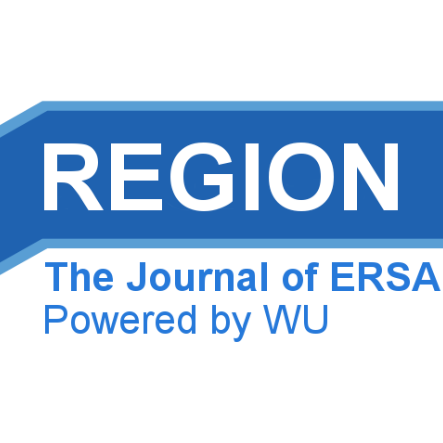The Mediterranean Diet and the Increasing Demand of the Olive Oil Sector: Shifts and Environmental Consequences
DOI:
https://doi.org/10.18335/region.v5i1.219Abstract
Mediterranean countries play a crucial role as olive oil producers and consumers compared to other world regions. This work focusses on the development of the world production, trade and consumption where the Mediterranean region stands out from the rest of the world, in particular, the Northern Mediterranean countries. Aspects such as how communication emphasizes the benefits of the Mediterranean diet - which is a distinctive characteristic of the Mediterranean culture and identity - the Slow Food Movement, the International Olive Council campaigns, and the successive Common Agricultural Policies, that have triggered production, trade and consumption around the world, are here discussed. Such increases and stimuli brought and is still bringing changes to the olive oil sector such as a shifting tendency in production modes as well as modernization of the sector, responding to the increasing demand. These shifts and demand are changing landscapes and are being referred as environmentally harmful to the ecosystems as the production of olive oil is shifting to more intensive production systems and monoculture plantations. These issues are here debated and illustrated with case study examples, referring to the Mediterranean countries, particularly, referring to the Iberian Peninsula.
Published
How to Cite
Issue
Section
License
Copyright (c) 2018 Bruno Neves, Iva Miranda Pires

This work is licensed under a Creative Commons Attribution-NonCommercial 4.0 International License.
REGION is an open journal, and uses the standard Creative Commons license: Copyright We want authors to retain the maximum control over their work consistent with the first goal. For this reason, authors who publish in REGION will release their articles under the Creative Commons Attribution license. This license allows anyone to copy and distribute the article provided that appropriate attribution is given to REGION and the authors. For details of the rights authors grant users of their work, see the "human-readable summary" of the license, with a link to the full license. (Note that "you" refers to a user, not an author, in the summary.) Upon submission, the authors agree that the following three items are true: 1) The manuscript named above: a) represents valid work and neither it nor any other that I have written with substantially similar content has been published before in any form except as a preprint, b) is not concurrently submitted to another publication, and c) does not infringe anyone’s copyright. The Author(s) holds ERSA, WU, REGION, and the Editors of REGION harmless against all copyright claims. d) I have, or a coauthor has, had sufficient access to the data to verify the manuscript’s scientific integrity. 2) If asked, I will provide or fully cooperate in providing the data on which the manuscript is based so the editors or their assignees can examine it (where possible) 3) For papers with more than one author, I as the submitter have the permission of the coauthors to submit this work, and all authors agree that the corresponding author will be the main correspondent with the editorial office, and review the edited manuscript and proof. If there is only one author, I will be the corresponding author and agree to handle these responsibilities.




